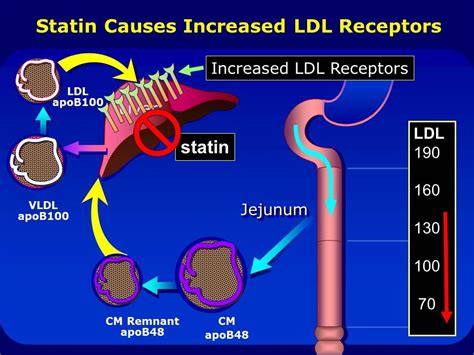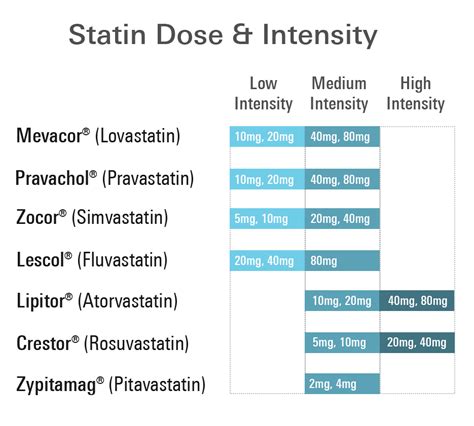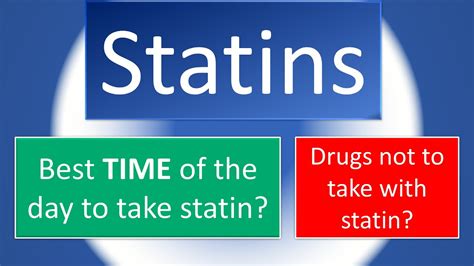Intro
Discover the truth about statins, exploring their benefits, risks, and side effects, including cholesterol reduction, heart health, and potential interactions, to make informed decisions about these medications.
The importance of statins in modern medicine cannot be overstated. These cholesterol-lowering medications have revolutionized the way we approach cardiovascular health, saving countless lives and improving the quality of life for millions of people worldwide. With their widespread use, it's essential to understand what statins are, how they work, and their benefits and potential side effects. In this article, we'll delve into the world of statins, exploring their history, mechanisms, and impact on our health.
The discovery of statins dates back to the 1970s, when Japanese scientist Akira Endo isolated a compound called citrinin from a fungus. This compound was found to inhibit the production of cholesterol in the liver, paving the way for the development of the first statin, lovastatin. Since then, numerous statins have been developed, each with its unique characteristics and benefits. Today, statins are one of the most prescribed classes of medications globally, with millions of people taking them to manage their cholesterol levels and reduce their risk of heart disease.
The impact of statins on cardiovascular health is multifaceted. By lowering low-density lipoprotein (LDL) cholesterol, also known as "bad" cholesterol, statins help prevent the buildup of plaque in the arteries, reducing the risk of heart attacks, strokes, and other cardiovascular events. Statins also have anti-inflammatory properties, which can help stabilize plaques and prevent them from rupturing. Furthermore, statins have been shown to improve blood vessel function, reduce blood pressure, and even have anti-cancer properties. With so many benefits, it's no wonder that statins have become a cornerstone of cardiovascular medicine.
How Statins Work

Statins work by inhibiting the enzyme HMG-CoA reductase, which plays a crucial role in the production of cholesterol in the liver. By blocking this enzyme, statins reduce the amount of cholesterol produced in the liver, leading to lower levels of LDL cholesterol in the bloodstream. This, in turn, reduces the amount of cholesterol available to be deposited into the walls of the arteries, slowing down the progression of atherosclerosis. Statins also increase the production of high-density lipoprotein (HDL) cholesterol, also known as "good" cholesterol, which helps remove excess cholesterol from the bloodstream and transport it to the liver for excretion.
Benefits of Statins
The benefits of statins are numerous and well-documented. Some of the most significant advantages of statin therapy include: * Reduced risk of heart attacks and strokes * Lower risk of cardiovascular mortality * Improved blood vessel function * Reduced inflammation and oxidative stress * Potential anti-cancer properties * Improved cognitive function and reduced risk of dementiaTypes of Statins

There are several types of statins available, each with its unique characteristics and benefits. Some of the most commonly prescribed statins include:
- Atorvastatin (Lipitor)
- Simvastatin (Zocor)
- Rosuvastatin (Crestor)
- Pravastatin (Pravachol)
- Lovastatin (Mevacor)
- Pitavastatin (Livalo)
Side Effects of Statins
While statins are generally well-tolerated, they can cause side effects in some individuals. Some of the most common side effects of statin therapy include: * Muscle pain and weakness * Liver damage * Increased risk of diabetes * Cognitive impairment * Sleep disturbancesWho Should Take Statins?

Statins are typically prescribed for individuals with high cholesterol levels, particularly those with a history of cardiovascular disease or at high risk of developing it. The American College of Cardiology and the American Heart Association recommend statin therapy for:
- Individuals with LDL cholesterol levels above 190 mg/dL
- Those with a history of cardiovascular disease, such as heart attacks or strokes
- Individuals with diabetes
- Those with a high risk of cardiovascular disease, based on factors such as age, family history, and lifestyle
Statin Therapy and Lifestyle Changes
While statins can be highly effective in lowering cholesterol levels, they should be used in conjunction with lifestyle changes to achieve optimal cardiovascular health. Some of the most important lifestyle changes include: * Eating a heart-healthy diet, rich in fruits, vegetables, and whole grains * Engaging in regular physical activity, such as walking or jogging * Maintaining a healthy weight * Quitting smoking * Managing stress through techniques such as meditation or yogaFuture Directions

As our understanding of statins and their effects on cardiovascular health continues to evolve, researchers are exploring new and innovative ways to use these medications. Some potential future directions include:
- Developing new statins with improved efficacy and safety profiles
- Using statins in combination with other medications to achieve optimal cardiovascular health
- Exploring the potential anti-cancer properties of statins
- Investigating the use of statins in preventing and treating other diseases, such as Alzheimer's and Parkinson's
Conclusion and Next Steps
In conclusion, statins have revolutionized the way we approach cardiovascular health, offering a highly effective way to lower cholesterol levels and reduce the risk of heart disease. While statins are generally well-tolerated, they can cause side effects in some individuals, and lifestyle changes are essential to achieving optimal cardiovascular health. As research continues to uncover the benefits and potential uses of statins, it's essential to stay informed and work closely with healthcare professionals to determine the best course of treatment. We invite you to share your thoughts and experiences with statins in the comments below and to explore our other articles on cardiovascular health.What are statins and how do they work?
+Statins are a class of medications that work by inhibiting the enzyme HMG-CoA reductase, which plays a crucial role in the production of cholesterol in the liver. By blocking this enzyme, statins reduce the amount of cholesterol produced in the liver, leading to lower levels of LDL cholesterol in the bloodstream.
Who should take statins?
+Statins are typically prescribed for individuals with high cholesterol levels, particularly those with a history of cardiovascular disease or at high risk of developing it. The American College of Cardiology and the American Heart Association recommend statin therapy for individuals with LDL cholesterol levels above 190 mg/dL, those with a history of cardiovascular disease, and those with diabetes.
What are the potential side effects of statins?
+While statins are generally well-tolerated, they can cause side effects in some individuals, including muscle pain and weakness, liver damage, increased risk of diabetes, cognitive impairment, and sleep disturbances.
